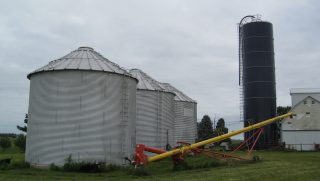Most farmers and their families have heard the phrase “estate planning.” Most have even taken a stab at it. A few have completed an estate plan. Even fewer are approaching the topic with the management approach that equips them to survive for multiple generations.
The fundamental issue is that it’s treated as a one time task to check off of a list. Sadly, it’s not like that. We feed cows every day, we plant crops every year, and we should consider our estate plans to be a recurring part of our business.
The dynamic nature of planning
Why do you have to do this all the time? The obvious reason is that things change. Your health, the goals of your family members for their own lives, the financial conditions you operate in, etc. Things are always changing and old plans create brand new headaches.
Most importantly, things that you can’t control are always changing. Laws, markets, all of it is a moving target. The one that jumps out at me (and hopefully you) is the impending sunset of historic and giant estate tax exclusion amounts.

If you’re a family who has made some attempt at planning, you know what that means, and if you don’t, then you better get up to speed.
Estates are taxed upon the passing of the owners, but a certain dollar value is exempt from taxation (or excluded). If your estate is valued below the exemption, estate taxes don’t apply to you. Right now — and for the past few years — the exclusion has been generous. In 2023 the federal estate tax exemption is $12,920,000 for an individual or $25,840,000 million for a married couple. However, without congressional action, that changes drastically in 2026. It’s scheduled to be cut in half in 2 years unless that tax code is changed with legislation. You can leave your congressman a voicemail, or you can engage the team of professionals that I nudge everyone to assemble. The choice is yours.
For farm and ranch families, historically high land values have made this a concern. Exceeding 12 million in total value is pretty easy these days and could leave your survivors with an estate tax bill and no choices except liquidation.
And you thought you were done with your lawyer and financial advisor, didn’t you?
Also, if you have a will, and think that’s all you need, I beg of you to Google probate costs in your area. It’s a real and substantial cost, and there is no real reason for it. Wills are better than nothing, but not by much.
Solutions and tools
You have a wide variety of complex and simple tools at your disposal to work through any estate planning challenges that your farm may face. Life insurance, trusts, conservation easements, and business entity creation and modification are just a few. Use the team you’ve built (again with the subtle hints) to customize your solutions. But don’t delay, and don’t expect good help to be free.
The cost of waiting is real, and solutions are an investment in your future while taxes are sunk cost. Approach this part of your business the same as you would any other, and understand that the work is ongoing if you want it to pay off in the future.
Katie Ogden owns and operates Wildcatter Wealth Management LLC in Laramie, Wyoming. She’s a 2007 graduate of the University of Wyoming with a bachelor’s degree in Agriculture Business and has been working in financial services to help ranch and farm families ensure a prosperous future ever since.



